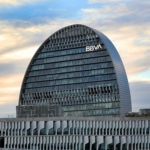BBVA reiterates its commitment to clarifying the facts and cooperating with authorities in the Cenyt case
Following the lifting of the secrecy order, BBVA wishes to reiterate the main messages regarding its actions in recent months.

At the beginning of 2019, news surfaced from different media outlets, connecting BBVA with the monitoring and interception of private communications, allegedly carried out in the past by the Cenyt Group.
In February 2019, BBVA had proof that these acts were under investigation by the Spanish High Court in piece number 9 as part of a case known as ‘Tandem’ -- at the time, under a secrecy order. The case is investigating alleged malpractice by some members and former members of the (Spanish) police force, in which the Cenyt Group’s relationship with BBVA is one piece among many.
Since the onset of the procedure, this issue has been repeatedly analyzed by the governing bodies -- both the Board committees, which have competence over these matters, and the entire Board itself. From the beginning, the governing bodies defined full cooperation with the authorities to clarify the facts as a priority and have promoted and monitored the internal investigation processes.
In order to help clarify the facts, identifying all information and documents at the bank that could be linked to the case was deemed essential. For this reason, and as it is customary in these cases, the external law firms in charge of the defense of the bank (Garrigues and Uría) commissioned PwC on January 25th to carry out a forensic investigation.
PwC has gathered a massive amount of documents from the past 15 years, both in physical and digital format. They have been subjected to a thorough and objective analysis, applying a standard methodology used in these types of investigations. The methodology used by PwC guarantees that the documents will not be modified, and will remain traceable. A third party will also be able to verify all searches that were carried out.
The original lines of this investigation concluded in July 2019; others were initiated at a later date and were also finalized. In the future, new lines of investigation may be opened, while judicial proceedings are underway. Even the court has requested new lines of investigation to be opened, using PwC's methodology and the documents gathered in the process.
Full cooperation with the authorities is reflected in the presentation of information from the onset of the case, as well as numerous writs and documents throughout this time. BBVA also proactively shared all relevant documents obtained by PwC in the different lines of investigation. A rough estimate shows that during all this period, BBVA provided 24 writs and more than 8,300 files, totalling over 100,000 pages. Additionally, all of the documents gathered by PwC were made available to the court.
Furthermore, BBVA’s representative testified in court on three occasions for more than 15 hours, and provided extensive answers to all questions posed. He also pleaded that the bank bears no responsibility for the facts under investigation. Another example of said cooperation was the fact that BBVA released PwC from its professional secrecy so it could testify at the Spanish High Court on February 20, 2020.
In parallel, the governing bodies have been promoting improvements in the corporate governance model, as well as policies and procedures to enhance internal controls in the organization. New policies and improvements for subcontracts and purchases (related to vendors homologation, verification and validation of goods and services delivery, authorization channels and invoice payments). Additionally, the Model for the Prevention of Criminal Activity has been reinforced, ensuring that it benefits from all improvements to the internal control model.
Furthermore, as was announced at the end of 2018, the bank’s governing bodies agreed to strengthen the independence of control areas (Internal Control & Regulation and Internal Audit), with directors in these areas reporting directly to the Board through corresponding Board committees.
Tasks have also been reassigned among the Board committees, reallocating the responsibilities of supervision and oversight of the Bank’s second and third ‘defense layers’ under two specialized committees: the Risk and Compliance Committee and the Audit Committee, respectively.
All these measures are designed to create a stronger, more effective control model, which is subject to ongoing improvements.
Moreover, given the facts and the documents available at the bank, the Board of Directors agreed to follow the pertinent internal procedures to assess the actions of all people allegedly involved in the relationship with Cenyt and who are still bank's employees. This assessment has been completed, prompting the adoption of corresponding measures.
Looking forward, BBVA will continue to act with full determination and diligence under the direct leadership of the Board of Directors, whose members have no connection whatsoever with the case. BBVA reiterates that it pleaded that the bank bears no responsibility for the facts under investigation. The priority continues to be cooperating with authorities to clarify the facts because the fundamental investigation, the one that prevails over any other initiative, is the one being carried out by the Spanish High Court, which must elucidate what happened. Justice has its own deadlines and it’s important to let the courts do their work, and not make parallel judgments.